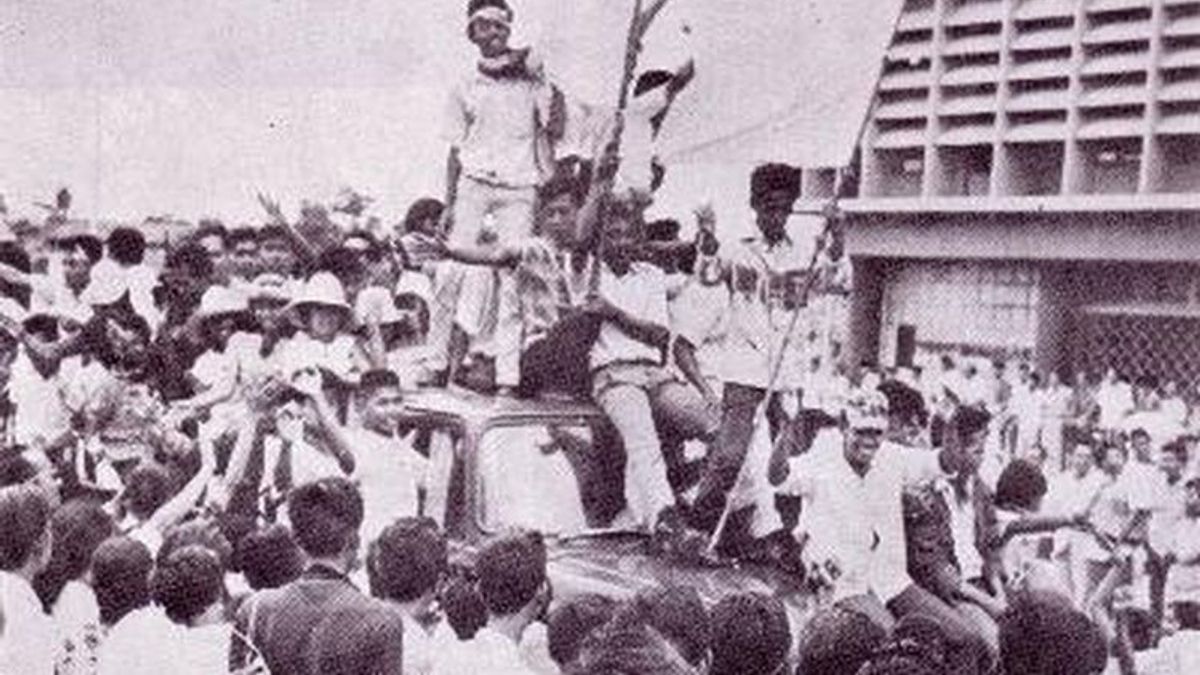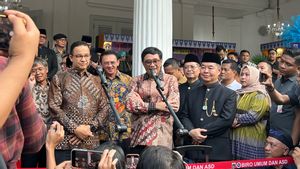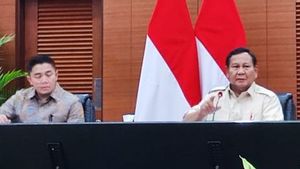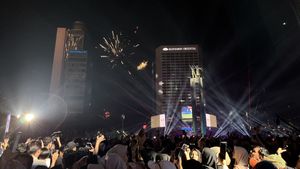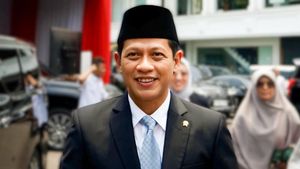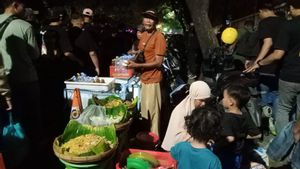JAKARTA - The government of President Soekarno was once considered a failure. Bung Karno's actions as if he didn't care about the behavior of his political elite became irrational. All Indonesian people considered Soekarno's ministers to be insensitive.
They live extravagantly. Meanwhile, the people have to bear the sufferings of life as a result of government policies. People are angry. So are students. The Old Order is considered an era full of depravity. They also took to the streets inflaming the Three Demands of the People (Tritura).
Bung Karno's power as President of Indonesia was tarnished by the presence of the events of the September 30th Movement (G30S). Students began to question Bung Karno's capacity to be reluctant to dissolve the Indonesian Communist Party (PKI). In other words, Bung Karno was considered too soft when it came to the PKI.
This condition was further exacerbated by the economic crisis that hit Indonesia at the end of 1965. Perhaps the Indonesian government had a ploy. They imposed a policy of devaluing the rupiah. The Rp10,000 and Rp5,000 notes were withdrawn from circulation and the value was deducted by 10 percent. The tactic is in fact the master's weapon.

People panic. The devaluation of the rupiah was immediately felt for all Indonesian people, especially students. The smallest example is the increase in the price of city buses, which was initially IDR 200 to IDR 1,000 at that time. Another statement came from one of the participants in the action who is also a student of the Faculty of Medicine, University of Indonesia, Firman Lubis. He gave an example, in 1962, he received an official bond of Rp. 850 per month. At that time the price for a bowl of noodles was only Rp.
The situation began to change when the devaluation of the rupiah greeted. At the end of 1965, the amount of bond service he received did increase to Rp. 3,500 a month. However, the price of noodles at that time had reached Rp. 1,500 for one bowl. The audience also saw the problem as Bung Karno's failure.
“Unfortunately, Bung Karno was not a good leader in building and managing a post-independence country. Bung Karno is not a leader who can fill independence by building his nation to be modern, strong, and prosperous."
"It seems that Bung Karno has been caught up in the romance of the independence revolution all the time. Of course, we can't completely blame Bung Karno, especially since his struggle was long and hard, to the point that he had to be in prison and thrown into exile," said Firman Lubis in the book Jakarta 1950-1970 (2018).
Insensitive MinisterA series of problems that make the students upset. Action taking to the streets is the main option. The students' discontent was also poured into three demands. First, dissolve the Indonesian Communist Party (PKI), reshuffle the cabinet, and lower prices. These three demands were later known as Tritura (Tri Demands of the People).
Long demonstrations (October 1965-March 1966) were also perpetuated. The reverberation of the action did not only take place in one place, but in many places. These include the State Palace, Bogor Palace, Jakarta streets, to ministry buildings.
The student's spotlight is not only directed at the figure of Bung Karno. His ministers also became victims of abuse. Deputy Prime Minister, Soebandrio gets scorned: Peking Dog. While other ministers are considered insensitive. Instead, they are seen as living extravagantly in the midst of the sultanate experienced by the Indonesian people.
“Hundreds of students enter and sit in this luxurious building. The students had tired faces, but their eyes were shining, their clothes were dirty, and they were dirty but their hearts were clean. Here and there I saw students writing on the walls of the Gotong Royong People's Legislative Assembly: THE PEOPLE ARE POORED, MINISTERS OF SPREADING IN HI, THE MINISTER OF DON'T FUCK UP - DISCONNECT the PKI, and other writings like the one above."
"Indeed these writings are dirty, but this is the voice of the hearts of the Indonesian people who have seen political acrobatics and empty slogans. This is the voice of the people: firm, harsh, clear but honest," explained Soe Hok Gie in his diary which was recorded in the Notes of a Demonstrator (2011).

Tritura's increasingly massive demonstration finally got a response. Bung Karno also reshuffled his cabinet with new people. Dwikora II Cabinet, his name. This cabinet is a refinement of the Dwikora I Cabinet. It is planned that the new cabinet will be announced on February 12, 1966.
The students seemed less sympathetic. They see the new cabinet is still dominated by old faces. Communists too. As a form of refusal, the students blocked the road to the Palace and tried to intercept the cars carrying the minister by deflation of car tires.
General Hoegeng Imam Santoso almost experienced it. The honest police, who at that time had the status of Minister of State Contributions, would be lined up as Minister of State Secretary. Luckily, many people recognized Hoegeng's face. Students also gave way for Hoegeng to pass. All because Hoegeng is known as a straight man.
Hoegeng may be lucky. But not with other ministers. Many came to the inauguration by taking a taxi or walking to the State Palace. However, what made Hoegeng furious was the minister who came excitedly using a helicopter. According to Hoegeng, this scene made the people furious.
“Apparently I am one of those who are safe when entering the palace. Because there are ministers who take taxis or walk because their cars were crushed by the demonstrators. But among the ministers there are also those who come in a classy and very safe way, namely by helicopter!”
"The ministers are already present at the palace. Although there were demonstrations against the simplification of the cabinet, most of the ministers were not afraid or worried. In fact, many shouted jokingly: ora sido, ora sido (not so, not so),” concluded Hoegeng Imam Santoso as written by Abrar Yusra and Ramadhan KH in the book Hoegeng: Ideal Police and Reality (1993).
The English, Chinese, Japanese, Arabic, and French versions are automatically generated by the AI. So there may still be inaccuracies in translating, please always see Indonesian as our main language. (system supported by DigitalSiber.id)
